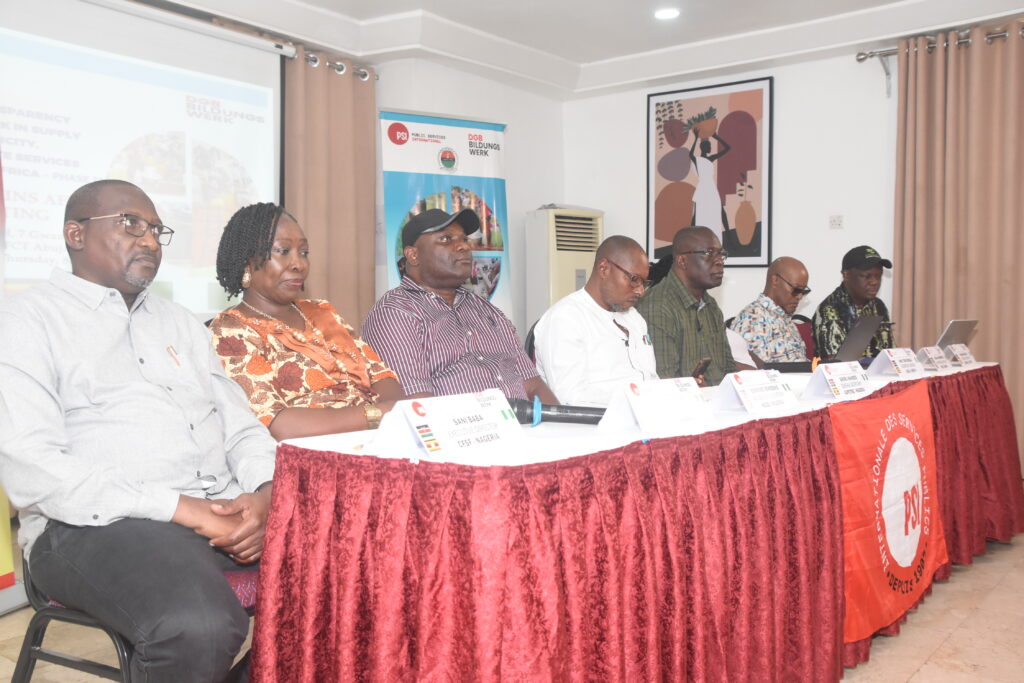By Bunmi Yekini

Trade unions and civil society organisations from Nigeria, Kenya, and Uganda have issued a resounding call for African governments to end the privatisation of water, electricity, and waste services, warning that continued dependence on profit-driven models is deepening inequality and undermining public service delivery.
The demand came at the close of a two-day regional meeting held in Abuja, Nigeria, under the theme *“Promoting Transparency and Decent Work in Supply Chains in Electricity, Water, and Waste Services in Sub-Saharan Africa.”* The event, convened by Public Services International (PSI) in partnership with DGB Bildungswerk Bund (DGB BW), brought together stakeholders from across the three countries to strategise on reclaiming public control over essential services.
“Privatisation has not only failed to deliver better services, but it has worsened access and affordability for millions of Africans,” said Dr. Omolola Akinluyi, a PSI representative. “We are calling on our governments to put people before profit and restore public trust in essential services.”
Participants argued that years of privatisation, often pushed by International Financial Institutions like the World Bank and IMF, have done little to improve service delivery. Instead, they say, these policies have led to opaque contracts, increased corruption, job insecurity, and rising user fees.
“In Uganda, we have seen how Independent Power Producers are essentially privatisation through the backdoor,” said Daniel Wamala of the Uganda Electrical Allied Workers Union (UEAWU). “These deals leave workers unprotected and communities in darkness.”
The communique from the meeting highlights that privatisation has taken many covert forms—including corporatisation and subletting—that continue to strip public services of accountability and social justice.
“Public services are not commodities. They are a right and must remain under democratic control,” declared Nigeria’s AUPCTRE President, Benjamin Anthony. “We reject any model that sidelines workers and disempowers the public.”
Among the key resolutions adopted were:
* Immediate reversal of privatisation deals in water, electricity, and waste sectors.
* Rejection of further IFI-driven reforms based on Public-Private Partnerships.
* Adoption of Public-Public Partnerships (PUPs) as a democratic alternative.
* Greater investment in public sector workers and ratification of key ILO conventions.
* Restoration of tripartite dialogue involving workers, employers, and governments.
Calling for bold political will, the delegates warned that failure to act would worsen already fragile public systems and further marginalise the continent’s most vulnerable.
“The future of Africa depends on equitable access to public goods,” said Nyokabi Mwangi of the Union of Kenya Civil Servants (UKCS). “Our message is clear: stop privatisation and build strong public institutions.”
The event concluded with a unified appeal to the governments of Nigeria, Kenya, and Uganda: “Put people before profit by halting the privatisation of essential services and reaffirming the public sector as the cornerstone of democratic development, equity, and sustainable livelihoods.”
